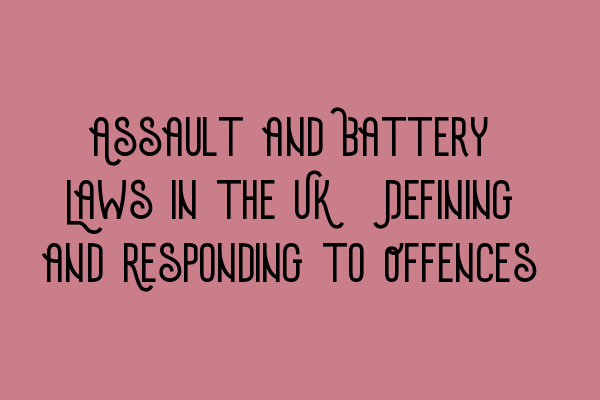Assault and Battery Laws in the UK: Defining and Responding to Offences
Introduction
Assault and battery are serious criminal offences in the United Kingdom that can result in severe penalties. It is crucial for individuals, both perpetrators, and victims, to have a clear understanding of these offenses and their legal implications.
Defining Assault and Battery
Assault refers to the intentional or reckless act that causes another person to apprehend immediate physical harm. Battery, on the other hand, involves the actual physical contact or intentional and unlawful use of force against another individual.
Understanding the Offences
In the UK, assault and battery offenses are governed by various legislation, such as the Criminal Justice Act 1988 and the Offences Against the Person Act 1861. These laws outline the different degrees of assault and battery offenses, depending on the severity of the harm caused.
Penalties for Assault and Battery
The penalties for assault and battery vary depending on the specific circumstances and severity of the offense. Perpetrators may face imprisonment, fines, community service, or a combination of these consequences. It is essential to seek legal advice and representation to ensure the best possible outcome in such cases.
Responding to Assault and Battery Offences
If you have been a victim of assault or battery, it is vital to report the incident to the police and seek medical attention if required. Additionally, preserving any evidence, such as photographs or witness statements, can greatly support your case. Seeking legal assistance is crucial to understanding your rights and pursuing justice.
Conclusion
Assault and battery offenses carry severe consequences in the UK. Understanding these laws, defining the offenses, and knowing how to respond are key to protecting your rights and ensuring justice is served. If you require legal advice or representation, our team of skilled solicitors at SQE Criminal Law & Practice Law UK is here to help.
Related Articles
